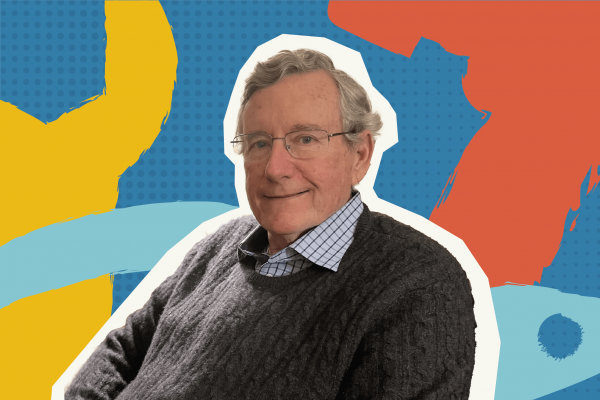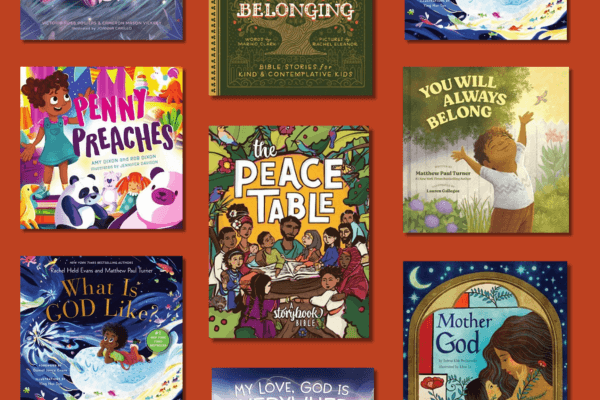Like Christ's resurrection, the good news of the Student Non-Violent Coordinating Committee came through a woman’s act of belief. And it, too, arose on Easter Sunday.
It had been a few months of sit-ins and beat-downs, following the direct actions of February 1960. Excited by these efforts, one woman saw threads of possibility that extended far beyond the milkshakes and Coke bottles of lunch counters. After convincing her colleague at the Southern Christian Leadership Conference to pony up $800 of funding, the woman organized a conference in North Carolina for young activists to meet each other and strategize. These strands eventually wove themselves into the SNCC, a student-led organizing network that became one of the most influential organizations for civil rights in the 1960s. But the woman’s colleague would often be credited for building the loom.
The woman’s name was Ella Josephine Baker. Her colleague? Martin Luther King Jr.
Unfortunately, there is no Selma for Ella Josephine Baker. There’s no tasteful homage to her powers of speech, nary a commemorative magazine issue nor stamp, and certainly no federal holiday. On the surface, this omission seems just another entry in the banal disrespect that black women have had to endure for centuries. But perhaps that explanation is too simple.
Fiercely private, Baker was deeply skeptical of celebrity, wishing her work to speak for itself. She also rejected the combination of authoritarianism and misogyny that often passed for leadership in the world of advocacy. Baker saw herself as simply continuing a legacy of female relatives who’d managed to resist everything from slavery to Jim Crow. These beliefs endeared her to the young organizers she worked with, especially young women.
Born in Norfolk, Va., in 1903, Baker grew up in a storytelling family, comfortably nestled in family lore. These stories had a powerful impact on Baker, who cited her grandmother — a former slave — as one of the most important influences on her life. Baker graduated from Shaw University in 1927 as, valedictorian of her class, and moved to New York City to pursue a career in civic engagement and political action around issues of economic injustice, once saying, “People cannot be free until there is enough work…to give everybody a job.”
By 1940, she was working with the NAACP as a field secretary, combing the South for members; by 1943, she’d been promoted to a director of branches within the organization. After leaving the NAACP, Baker went on to co-found the group In Friendship, which provided economic aid to grassroots activists as a direct response to Jim Crow laws. During this period, King tapped her to help found his new project, the SCLC.
Baker was adept at navigating tricky situations with grace, humor, and story, which helped her maintain her faith in organizations, people, and to a lesser extent, God — even as she watched philandering male colleagues deliver stirring oratory on ideals and virtue. Baker took particular umbrage with the killing of “black mothers’ sons,” and their perceived lack of importance in society, a concern that echoes today.
But the youth she worked with provided a constant source of hope. She called them, “the people who kept the spirit going.”
“Strong people don’t need strong leaders” is a quote often attributed to Baker, typifying her move away from a pastoral, almost evangelical, approach to civil rights leadership into a model where power was diffused equally among oppressed people. Under Baker’s leadership, SNCC became known for being the “least sexist” organization of its kind — which to the contemporary ear doesn’t quite register as high praise. For the time, it was.
A firm believer in sustainable movements, Baker was a tireless teacher and constant source of wisdom for younger generations. And her enduring influence is perhaps the most powerful testimony to her success: Baker’s indelible impact on grassroots political organizing can be found everywhere from the tents of Occupy Wall Street to the raised fists of students from Marjory Stoneman Douglas High School.
Baker passed away on her 87th birthday: Dec. 13, 1986 — an fitting end for a woman who deeply believed in the cyclical nature of community organizing.
Though Baker’s path was a circuitous one, her steps were a sure trod toward voter rights, racial justice, and liberation for all. There is no Selma for Ella Josephine Baker. But there would likely have been no Selma without her, either. And maybe that matters just as much.
Got something to say about what you're reading? We value your feedback!







